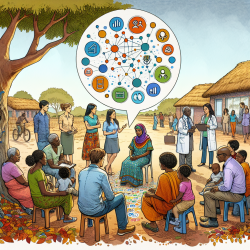Understanding the Intersection of Adverse Childhood Experiences and Homelessness
The relationship between adverse childhood experiences (ACEs) and homelessness is a pressing issue that significantly impacts the health and well-being of youth. A recent study published in BMC Pediatrics, titled "Health and adverse childhood experiences among homeless youth," sheds light on this complex interaction. As practitioners dedicated to improving outcomes for children, it is crucial to delve into these findings and explore how we can apply them to our practice.
Key Findings from the Study
The study analyzed data from 119,254 students in Minnesota, focusing on the prevalence of ACEs and their impact on health across different housing contexts. The results revealed that:
- Youth experiencing homelessness, whether with family or unaccompanied, are at higher risk for chronic health conditions compared to their housed peers.
- The prevalence of ACEs is significantly higher among homeless youth, with 85.5% of unaccompanied homeless youth experiencing at least one ACE.
- Both ACEs and homelessness independently contribute to poor overall health and chronic health conditions, with each additional ACE increasing health risks.
Implications for Practitioners
These findings underscore the importance of a data-driven approach in addressing the needs of homeless youth. Here are some strategies practitioners can implement:
- Advocacy for Stable Housing: Advocate for policies that prioritize stable housing as a protective factor against the negative impacts of ACEs.
- Comprehensive Screening: Incorporate screening for ACEs and housing status into routine assessments to identify at-risk youth early.
- Integrated Care Models: Develop integrated care models that include mental health, social services, and educational support to address the multifaceted needs of homeless youth.
Encouraging Further Research
While this study provides valuable insights, further research is needed to explore the nuances of how housing stability and ACEs interact to affect youth health. Practitioners are encouraged to engage in or support research efforts that aim to fill these gaps and develop evidence-based interventions.
By leveraging data and advocating for systemic change, we can create environments where all children, regardless of their housing status, have the opportunity to thrive.
To read the original research paper, please follow this link: Health and adverse childhood experiences among homeless youth.










